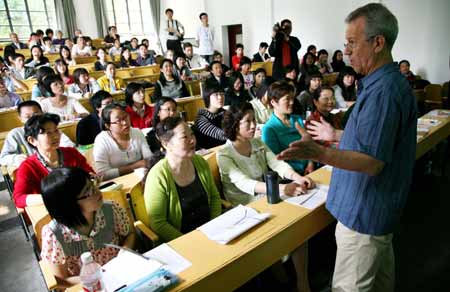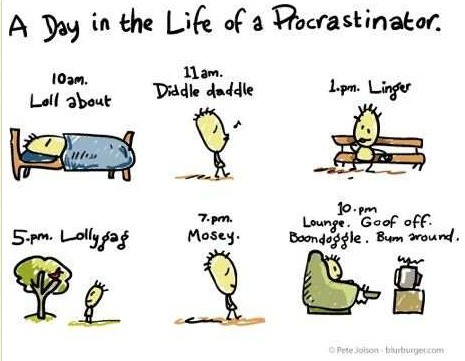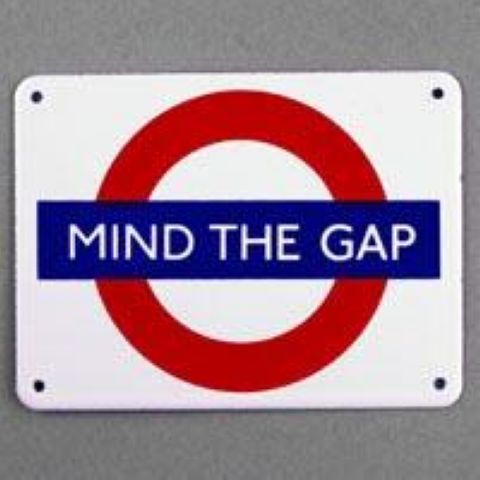I feel very productive today: during a lovely 2 hour lunch at the
local pub with some friends, I ended up planning out my research
project.
I structured the planning (I planned the planning... sheesh)
and it ended up working quite well, and feeling very thorough. So, here
is how I did it. I'm writing this as a set of tips, questions to answer
and so on, with the aim of it being useful whatever your topic, and
using my planning as an example. That said, I haven't even shown this to
my supervisor yet, and after the email he just sent me, I have
suspicions that he might want me to narrow my focus a little or
something. Nevertheless, this should be helpful for pinning down exactly
what you want to do. It might also help stimulate ideas.
In a previous post I talked about
how to decide on a research topic using your passions, your area of interest.
Now I'm going to go a bit further, talking about how to break it into
research question(s) and how to plan your actual research, literature
review and so on.
Step 1: Blow your brains out.
Brainstorm
the crap out of your idea. Write down (in question form) all the
different things you want to know about the topic you've chosen. For
example, here's mine (on extended reading in High School):
Step 2: Drown yourself in paper
The
moment I started discussing education with my friends (something which
is frowned upon in polite society) I discovered that a lot of my friends
are casually interested in alternative education methods, such as those
used by Homeschoolers and experimental schools. They threw books at me,
which I am currently working my way through. At the same time, others
have told me about workshops and conferences that might not immediately
seem relevant, but which have actually generated a lot of ideas for me.
So, while you're still at the stage of planning and thinking about the
research project, become a sponge and soak up anything that interests
you (whether it seems to apply to your project or not). And while you're
reading, make a note if anything sparks your imagination or curiosity,
or actually does seem relevant.
NB - make sure you keep track of your sources. I've
got a page in a notebook where I've been scribbling the titles of
books, articles, workshops and conferences as I've stumbled across them.
If a particular quote jumps out at me, I make a note of it and scribble
down the source and page number. This doesn't need to be according to
any referencing standard just yet - it's just source-gathering for now.
It also helps if you write a little reminder of what the thing was so
you can find it more easily later and avoid future stress.
Here's a list of what I've got so far:
- Summerhill by A. S. Neill - experimental school, no rules! Make
learning relevant and fun and intrinsically valuable, not forced.
- Unschooling: A Handbook - child-directed education, less
supervision, more on them learning better if they're interested rather
than forced to do irrelevant stuff. Lots of first-hand contributions.
- Teaching as a Subversive Activity - have not read yet.
- Nal'ibali workshop - a reading group program aimed at small kids
but using interesting alternative education methods to promote the idea
of reading being a fun, social activity
- English Educators Conference - July 2nd, R120 fee - remember to send in form!
and so on...
Step 3: Divide and conquer
Go
back to your brainstormed questions and add in things if you need to,
now that you've done some reading. Has your area of interest broadened
or narrowed? Have you come across an idea that you want to run with, or
an obstacle that is making you flee?
Now look
carefully at it, and try to group similar ideas together so that it's
more manageable, while including things about your practical application
of the idea.
E.g:
Breakdown of thoughtsplots
- Why aren't they reading? Lack of interest, economic factors, stigma against reading for fun
- What are the existing structures in place at the school? Are they working, ineffective, non-existent?
- How can alternative learning principles/strategies be used to
construct a sustainable extended reading program in a South African high
school?
If you're lucky, like I was, you might find that one of these makes a
pretty good research question on its own. Otherwise, you can send these
along to your supervisor as subquestions of the main topic/focus.
Step 4: Strategy
Now you need to think about how you
can actually research the answers to these questions. So, divide a
piece of paper in half, and write down each question as simply as you
can on one side. On the other, write down how you would go about
answering it.
E.g:
Step 5: Tick tock...
Now
draw up a rough guide of how much time you have to carry out your
research. Ours is about 10 weeks. Give yourself a a vague idea of what you
need to accomplish in each week.
E.g:
Pre-TP: Info-gathering. Start
literature review, attend conferences and workshops, get as much reading
done as possible because TP will have lots of marking etc going on.
Might be a good idea to finish lit review and come up with a list of
core principles common to the alternative teaching methods eg "Make it
fun"
Week 1-2: A bit frazzled because of adjusting to the timetable,
getting to know the class and so on. Discuss your idea with mentor
teacher - they might be able to suggest things. Find out what existing
structures are in place, what students' attitudes to reading are, what
the limits of the social context are, and how to source books. Check
what's available and compile a reading list.
Week 3-10: Apply the
program to a small group of volunteers (a common principle is that they
need freedom, they must choose to do it, it must be optional and fun and
worthwhile). Apply the principles outlined in the literature and keep a
detailed record of what works and what doesn't. Can this be extended to
a large group? Does it need to be compulsory? What level of supervision
is necessary? Does the book list need tweaking - should students have
input into the list?
Step 6: Fill in the gaps.
As
my project is very practically based, I think I need some way of
assessing whether it is working or not. However, I can't use
conventional methods such as a written test or survey because the
alternative teaching principles, and the aim of the project, mean that
it should be putting forward the idea of reading as fun and
intrinsically valuable. Therefore, nothing should be "for marks", and
there shouldn't be a formal assessment of the students. But how can we tell if
they're reading? Here I brainstormed a few more ideas:
- get them to keep reading journals in which they respond to the
books they are reading. These can be in any form they want, and they can
swear, doodle, etc, as long as they're responding to a text. They are
not for marks but the teacher needs to be able to see that they are
being updated. If learners want feedback they are free to give them in
for non-marks-based comments and so on.
- group discussions about themes and so on that crop up in the books, eg divorce, rape, world travel, magic, etc.
- projects during the group meetings in which learners creatively
respond to what they're reading, including songs, dance, skits, games,
debate, drawings, poetry, etc.
- feedback from students in the form of a questionnaire
Step 7: Pre-emptive strike!
Look over what you've got and visualise your supervisor's
response to it. Imagine your supervisor as being a cynical,
over-critical meanie who just doesn't get it. What are they pointing
out? Deal with it. Solve the problem.
Imaginary Supervisor: Hmm... all this airy-fairy bollocks
about child-directed education suggests to me that they'll just run
around like crazy people in your sessions and they won't do anything
productive. Are you telling me this whole thing is completely
unstructured? Is this just a wordy way of getting out of doing your
work, while looking busy?
Me: Aha! It's not unsupervised or
unstructured. There will be a planned (but flexible) program of
multimedia activities aimed at exploring reading and stimulating
creativity, with the aim of making reading fun. This program needs to
feel more like play than like work, otherwise the kids will never
develop a passion for reading. There will be a regular meeting at the
same place and time each week, and the format of the sessions will be
structured according to a lesson plan - opening activity, body,
conclusion. However, because this is 'fun' and relies on independent
reading and personal engagement, the learners must feel that they have
an investment in it, thus the idea of getting them to help construct the
program. If they think of an activity then they can run it in the next
session, if they want to (and if it's relevant) and so on. Do not
confuse creative freedom and an emphasis on playful engagement with
anarchy and a lack of a plan.
Some final notes
Remember that while planning your
research project, things might not turn out exactly as you want them to.
You may need to tweak, compromise, or even scrap the whole thing. Don't
be precious about it. Adapt, and develop your idea.
 |
Be flexible, and try a different angle.
|
For example, my initial plan was to implement
Nal'ibali's
methods in a high school. Then I went to the Nal'ibali workshop and
found that it was more appropriate for juniors than seniors, and so I've
decided to apply their principles and concepts rather than their exact
plan. At the same time I've recently done a lot of reading into
alternative education methods that has gotten me excited, so I've
decided to see if there are any strategies or principles in there that
might help - I think this is relevant because an extended reading
program is by nature outside of the classroom, and so traditional
classroom methods probably won't work in this case. Instead, methods
that encourage self-study and the students' personal investment in the
work
are much more likely to help my project succeed.
Now that you've got all this planned out in scribbles on scrap
paper, or neatly colour coded in a file system to rival the server room
at Google, go have a chat to your supervisor and see what they have to
say. Don't lose these notes, though - they might help with your research
proposal.



























